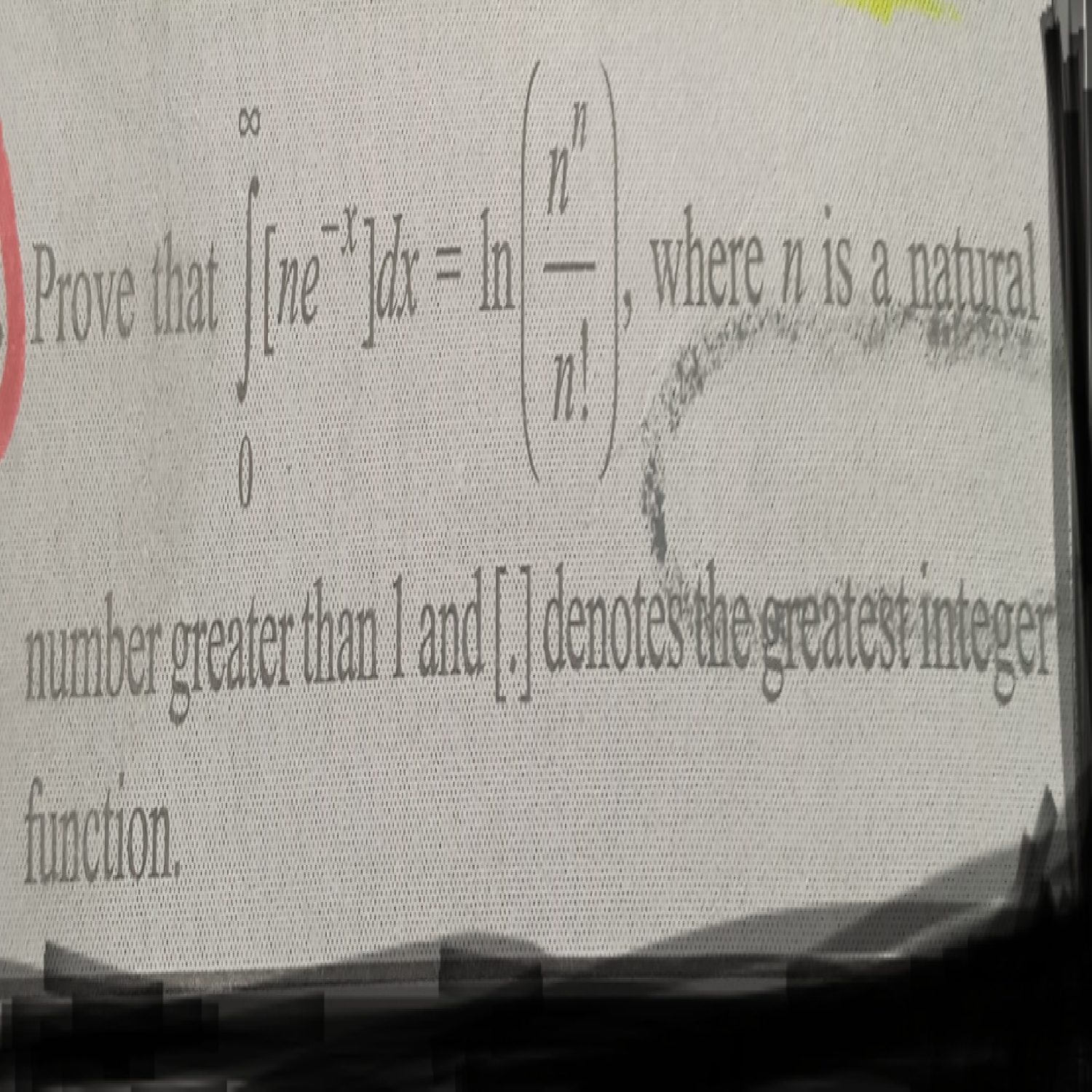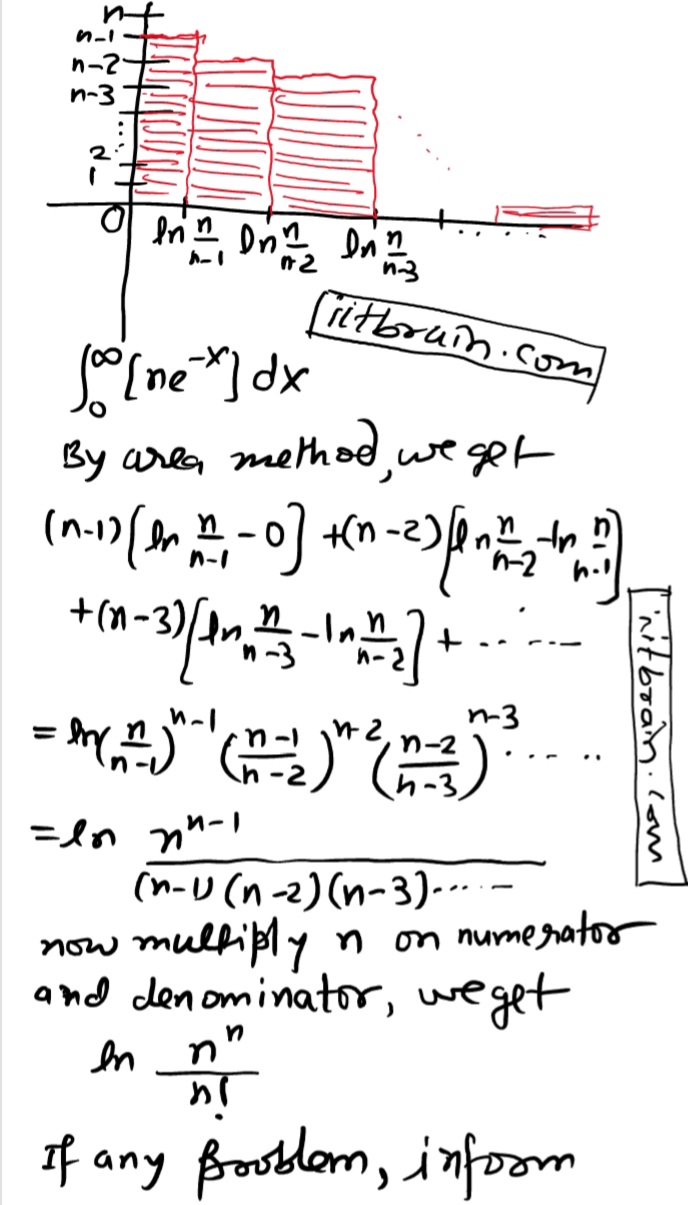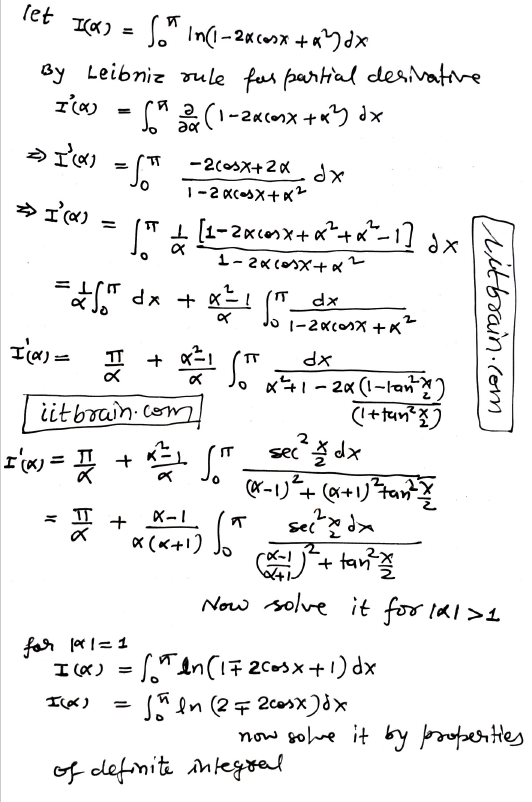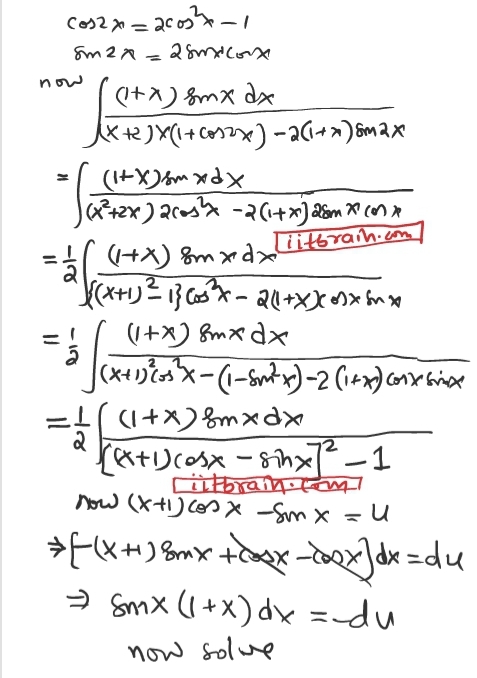20 - Integrations Questions Answers




1 . Iₙ = ∫ ( 1/ ( x² + a²)ⁿ )dx
How to do this by substituting x = a tan Α
2. Is this true
∫ f(x) d(kg(x)) = k ∫ f(x) d(g(x))
where k is a constant

How to inegrate ( In t) dt /(t-1)
let lnt = x so dt/t = dx so dt = tdx = exdx
now ∫(ln t)dt/(t-1) = ∫xexdx/(ex-1) = ∫x(ex-1+1)dx/(ex-1)
now solve
∫√tanx
let √tanx = t
so sec2xdx/2√tanx = dt
so (1+t4)dx/2t = dt
so dx = 2tdt/(1+t4)
now solve
∫0π [cot-1x]dx
i think the question will be ∫0π [cotx]dx because limits are in angular terms.
by graph given below we get answer as -π/2
here in the graph same coloured shaded region are dx*(-1) always, because for every similar pair [+k]+[-k] = -1 , here k is a real number, so complete area = -1(π/2)

- what is the integration of cosx 2
cosx2 = (cos2)x
so ∫ (cos2)x dx = (cos2) x / logecos2
cosx2 = (cos2)x
so ∫ (cos2)x dx = (cos2) x / logecos2 + C formula ∫axdx = ax/logea
Evaluate: 0ò11/{ (5+2x-2x2)(1+e(2-4x)) } dx
let I = 0ò11/{ (5+2x-2x2)(1+e(2-4x)) } dx
on using the property 0∫a f(x) dx = 0∫af(a-x)dx
we get 2I = 0ò11/(5+2x-2x2) dx
now solve this
Evaluate 0òx [x] dx .
integer nearst to x and less than x will be [x]
so 0òx [x] dx = 0ò1 0 dx + 1ò2 1 dx + 2ò3 2 dx + ..................... + [x]-1∫[x] [x]-1 dx + [x]∫x [x] dx
now solve it


